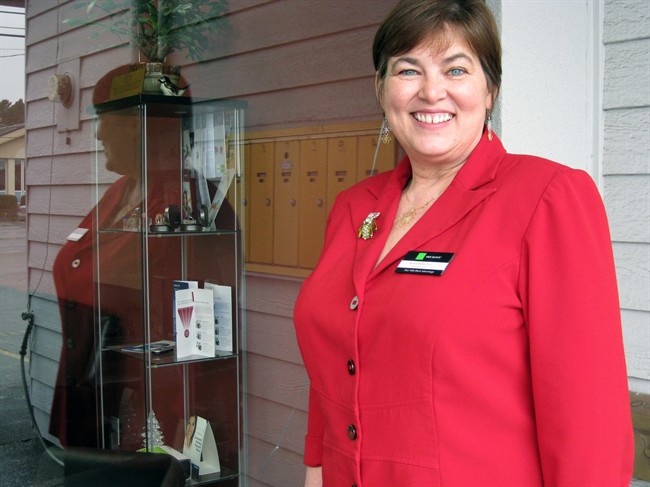SALEM, Ore. – Karen Butler has a British-sounding accent, but she’s never been to Europe. She woke up from dental surgery one day talking funny.

A year and a half later her “foreign” accent remains, and her story has travelled around the world.
The 56-year-old tax consultant from Toledo, Oregon, has found her life transformed by the dental procedure, which left her with dentures, and – depending on whom you ask – an Eastern European, Swedish or British accent.
Butler had all her top teeth and front bottom teeth removed in November 2009 because of gingivitis. A week later the swelling had gone away, but she still sounded strange. Her dentist told her she just had to get used to her new teeth.
But as weeks stretched on with no change, Butler did some online research. She diagnosed herself with Foreign Accent Syndrome, a medical condition with only a few dozen documented cases.
The syndrome is often the result of brain injury; though it is uncommon, most neurologists will see at least one case in their career, said Dr. Helmi Lutsep, professor and vice-chair of the Department of Neurology at Oregon Health & Science University. Sometimes a person just sounds slightly off; other times there may be a more dramatic-sounding accent, Lutsep said.

Get daily National news
“We don’t know exactly how or why it happens, but it simply affects rhythm of language,” Lutsep said. “I’m absolutely convinced this is a real phenomenon. These people are not making it up.”
Butler believes she hasn’t had a stroke or any brain trauma. She said she has tried, but hasn’t been able to get a brain scan because she said her medical insurance will not cover it.
“There’s nothing wrong with having an accent,” said Butler, who was born in Bloomington, Illinois, and moved to Oregon before she was one year old.
In Toledo, a small town of about 3,500 people, Butler is a novelty with her exotic accent. And that was before she went on the “Today” show and was featured on more than a dozen other television shows, newspaper articles and radio stations from Europe to Australia.
Josica Tichert, 58, of Newport, has had Butler prepare her taxes for five years but didn’t realize what happened until she saw her on TV.
“I just kind of thought … well, maybe she did speak that way before,” Tichert said. “And then, when I was watching the news, they had her on there, and I go, ‘Oh my gosh, she does my taxes.'”
Butler’s co-workers at the H&R Block tax preparation service noticed the change, but most didn’t ask her directly; they didn’t want to be rude. Some presumed she was taking voice lessons or had “visited (her) homeland.”
Since mid-April, when a client put her in touch with a local news station, Butler has been engaged in a swirl of media activity. The grandmother who has five children of her own had never been to New York until NBC flew her out for the “Today” show.
The Butlers said most of their time was spent fielding interviews and going from one meeting with reporters to the next.
Aside from the media attention, Karen Butler said her life hasn’t changed much. She’s less shy because of all the questions she’s been asked. For a while her family treated the accent like a “new toy,” asking her to say certain words or phrases.
She can’t hear her own accent when she speaks, but Butler said she can feel herself forming words differently. She talks about her daughter, Jamie, as a twenty-VUN year old. She said the accent has softened over time and was initially strongly “Transylvanian” sounding.
Every now and then, Butler’s daughter Cindy Miller, 36, calls her mom’s cellphone just to listen to the voicemail. Butler hasn’t changed it since the procedure.
“After all this time I like to hear it. I like to remember what it was. What my voice sounded like,” Butler said. “I don’t feel different inside at all. I’m the same old me I ever was.”
___
Tami Abdollah can be reached at http://www.twitter.com/LATams
.








Comments